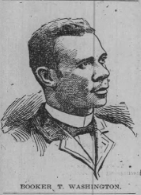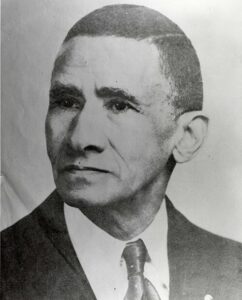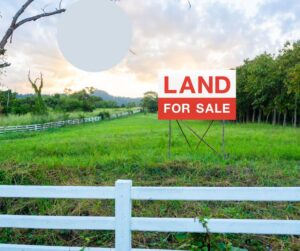Once upon a time in Black Entrepreneur History was an African American man named John P. Coburn that became one of the most successful men in Boston, Massachusetts as an abolitionist and Brattle Street Clothier.
Born around 1811 to parents John and Mary in Boston, Massachusetts, and although not much is known about his upbringing, one can deduce that he was a staunch businessman and abolitionist, conjoining his businesses with his move to create freedom for black people who escaped slavery.
Starting in the 1820s, Coburn began founding and operating his own clothing and tailoring shops in Boston, one on Brattle street called W.T. Coburn Clothing Store.[1] Another was located on Cornhill Street while his first one doubled as his home on Phillips Street. He was married to Emeline M. Coburn and also had an adopted son W.T.
Brattle street was where many fine businesses were located, and not only that, it was one of the paths of the Underground Railroad. Undercover abolitionists ran businesses on this road, such as Johsua Bowen Smith, an African American entrepreneur and abolitionist who ran a catering business.
Coburn not only ran his clothing stores but he also lived there as well with his wife Emeline M. Coburn and adopted son W.T. Coburn. It was after his son that he named the clothing shop on Brattle Street.
John P. Coburn was one of the wealthiest African American men in Boston at the time, and he used his wealth to help Black people in the Underground Railroad. It is said, though without significant facts, that he and his brother-n-law Ira Gray, founded a gaming house for African Americans which was also an undercover Underground Railroad station.
While Coburn was busy with his businesses, he was co-founder and Captain of the Massasoit Guards (August 1855), an African American military company that was formed to protect Black people from slave catchers.
The other African American men who held leadership positions in the Massasoit Guards were Lieutenants Robert Morris, Alfred G. Howard, John B. Bailey and Nestor P. Freemon and Orderly Sergeant Benjamin C. Gregory. At its founding 80 African American men had already signed up to participate in the protection of Black people from re-enslavement. The group also petitioned the governor to grant them firearms to complete their work as the governor had done to other groups.[2]
Another group that Coburn was heavily active in was the New England Freedom Association and Boston Vigilance Committee.
Death
It isn’t known what caused Coburn’s death, however, he passed away on January 20, 1873 in Boston, Massachusetts, where he’d spent his life doing what he loved – helping others gain and keep freedom while being a great Black business man.
Sources
[1]Ancestry.com. U.S. City Directories, 1822-1995 [database on-line]. Provo, UT, USA: Ancestry.com Operations, Inc., 2011.
[2]The Liberator,Boston Massachusetts, 17 August 1855, page 3
Year: 1850; Census Place: Boston Ward 6, Suffolk, Massachusetts; Roll: 336; Page: 399a
Ancestry.com. Massachusetts, State Census, 1855 [database on-line]. Provo, UT, USA: Ancestry.com Operations, Inc., 2014.
Ancestry.com. Massachusetts, Town and Vital Records, 1620-1988 [database on-line]. Provo, UT, USA: Ancestry.com Operations, Inc., 2011.





More Related Stories
Isaac Scott Hathaway – Founder of Isaac Hathaway Art Company & Designer of First African American Coin
James Wormley – Founder of the Most Expensive Hotel in Washington D.C. in 1800s – the Wormley Hotel
William E. Matthews – Wealthy Financial Broker & Civil Rights Leader of 1800s